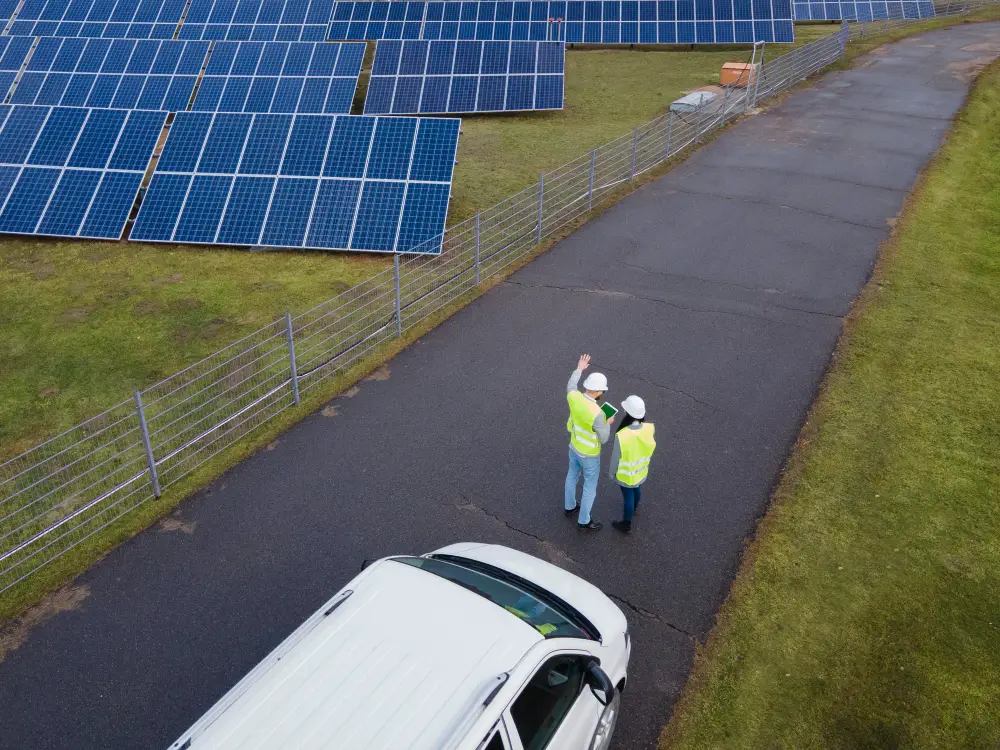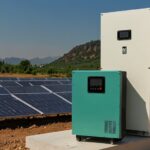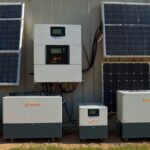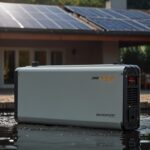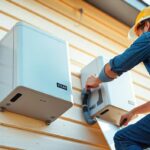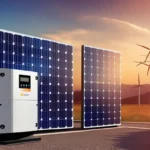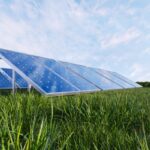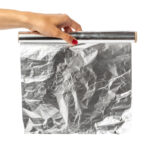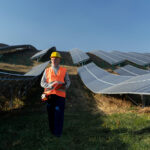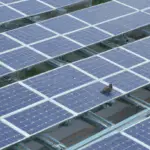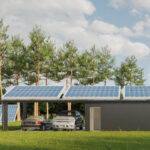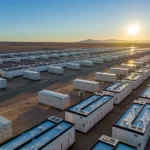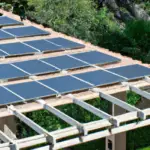As the world continues to shift towards renewable energy sources, solar farms have become an increasingly important part of our energy landscape. These large-scale installations harness the power of the sun to generate electricity, providing a clean and sustainable source of energy. However, like any other infrastructure, solar farm cleaning ensures it operate at its full potential. In this blog post, we’ll explore the importance of solar farm cleaning, the benefits it provides, and how it can be done effectively.
Benefits of Solar Farm Cleaning
Cleaning your solar farm regularly has several advantages. Here are some of the most significant benefits:
Improved Efficiency
Dust, debris, and dirt can significantly reduce the efficiency of your solar panels. When dirt accumulates on the surface of the panels, it blocks sunlight and prevents the photovoltaic cells from converting sunlight into electricity effectively. By keeping your solar panels clean, you can ensure that they operate at their maximum potential, leading to increased energy production and revenue.
Reduced Maintenance Costs
Regular cleaning helps prevent damage to your solar panels and other equipment. Dirt, dust, and debris can cause scratches and cracks in the glass or laminate material, which can lead to costly repairs or even replacement. Cleaning also helps prevent the buildup of vegetation, which can grow under the panels and obscure them, causing further damage.
Prolonged Equipment Life
Solar panels are designed to last for decades, but they can degrade over time if not properly maintained. Regular cleaning helps protect the panels from the elements and ensures that they continue to perform optimally. Additionally, cleaning helps prevent corrosion of the mounting structures and tracking systems, which can extend their lifespan.
Enhanced Safety
Solar farms can be hazardous, especially during maintenance activities. Keeping the site clean and clear of debris reduces the risk of accidents and injuries. It also makes it easier for workers to navigate the site safely, reducing the likelihood of tripping or slipping hazards.
Challenges of Solar Farm Cleaning
While cleaning your solar farm offers numerous benefits, there are also some challenges associated with the process. Here are some of the common challenges:
Scale & Design
Solar farms are often spread out over large areas and have unique solar farm design, making it difficult to clean every panel individually. The sheer scale of the operation requires specialized equipment and techniques to ensure efficient and effective cleaning.
Weather Conditions
Weather conditions can make cleaning challenging. Strong winds, heavy rain, and extreme temperatures can make it difficult to clean the panels effectively. Moreover, weather events like hurricanes or wildfires can damage the panels, requiring additional cleanup efforts.
Panel Tilt and Orientation
Solar panels are typically installed at an angle and orientation that maximizes energy production. This tilt and orientation can make it difficult to access certain parts of the panel, particularly in areas with steep slopes or uneven terrain.
Vegetation Management
Vegetation growth around the solar farm can pose a challenge when it comes to cleaning. Tall grass, shrubs, and trees can block access to the panels, and their roots can damage the mounting structures. Effective solar farm vegetation management strategies are essential to maintaining a clean and well-maintained solar farm.
Best Practices for Solar Farm Cleaning
- Cleaning frequency: Clean your solar panels regularly, ideally every 6 months, to ensure optimal energy production. However, if you live in an area with high pollution levels or extreme weather conditions, you may need to clean them more frequently.
- Use the right cleaning solution: Use a mild soap solution (e.g., diluted dish soap) and water to clean your solar panels. Avoid using harsh chemicals, abrasive materials, or high-pressure washes, as they can damage the panels’ surface.
- Soft brushes and sponges: Use soft-bristled brushes or sponges to gently scrub away dirt and debris. Avoid using rough or abrasive materials that can scratch the panels.
- Avoid using water with minerals: If possible, use deionized or distilled water to clean your solar panels. Water with high mineral content can leave streaks and spots on the panels.
- Dry the panels thoroughly: After cleaning, dry the panels thoroughly with a soft cloth or towel to prevent water spots.
- Inspect the panels: During the cleaning process, inspect the panels for any damage, cracks, or broken glass. Report any damage to the manufacturer or installer immediately.
- Monitoring system performance: Regularly monitor your solar panel system’s performance to identify any issues or decreased efficiency. This will help you detect potential problems early and take corrective action.
- Panel tilt and orientation: Consider adjusting the tilt and orientation of your solar panels seasonally to maximize energy production. Consult your manufacturer or installer for guidance on this matter.
- Tree trimming: Trim trees and other vegetation around your solar panels regularly to ensure unobstructed sunlight exposure. Overgrown vegetation can cast shade on the panels, reducing their efficiency.
- Professional maintenance: Hire professionals to perform routine inspections and maintenance tasks, especially if you’re not comfortable performing these tasks yourself. Professionals can also provide valuable advice on optimizing your solar panel system’s performance.
- Follow manufacturer guidelines: Familiarize yourself with your solar panel manufacturer’s guidelines for cleaning and maintenance. Some manufacturers may have specific recommendations for cleaning solutions, brushes, or other equipment.
- Join a maintenance program: Consider joining a solar panel maintenance program offered by your manufacturer or installer. These programs often include regular cleaning, monitoring, and repairs, ensuring your system runs at its best.
Conclusion
Solar farm cleaning is a critical aspect of maintaining optimal performance, maximizing energy production, and extending the life of solar panels. By understanding the importance of cleaning, the benefits it provides, and how to clean solar panels effectively, solar farm operators can ensure their facilities run at peak efficiency while minimizing maintenance costs and enhancing safety.

